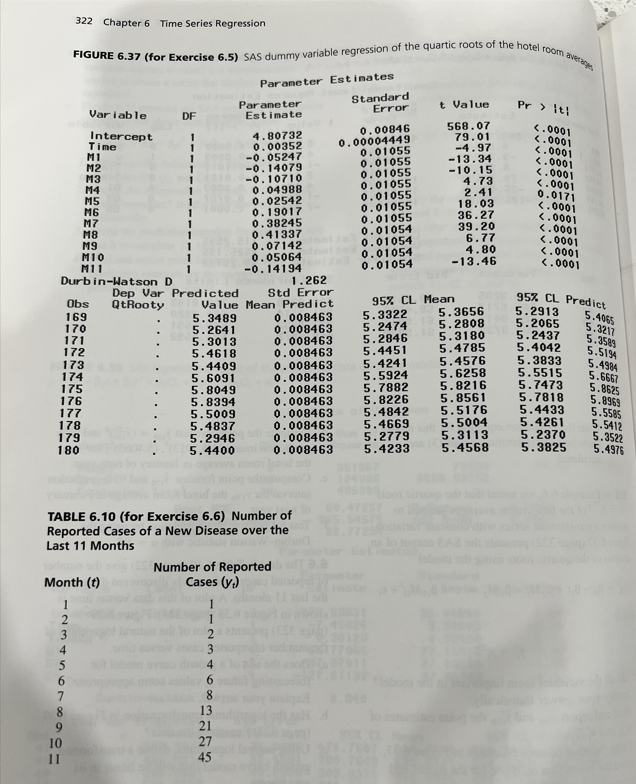Question
In example 6.6, we noted that the quartic roots (y t * = y t .25 ) of the hotel room averages seemed to produce
In example 6.6, we noted that the quartic roots (yt*= yt.25) of the hotel room averages seemed to produce a transformed series with constant variation. Figure 6.37 (page 322) presents the SAS output of an analysis of the quartic roots using the model
yt*=0 +1t +2M1+3M2+ . . . +12M11+1
where
yt*= yt.25
a. Do all the variable seem important in the model? Justify your answer.
b. Find and report*169 and*170, the point estimates of y*169and y*170.
c. Using the least squares estimates in Figure 6.37, write the prediction equation for the model and compute*169 and*170.
d. Compute the point forecast*169= (.25169)4and 95% prediction interval [(5.2913)4, (5.4065)4] for y169, the hotel room average in January of next year.
e.Compute the point forecast*170and 95% prediction intervalfor y170, the hotel room average in February of next year.
f. Test for positive autocorrelation by using the Durbin-Watson statistic with= 0.05.

Step by Step Solution
There are 3 Steps involved in it
Step: 1

Get Instant Access to Expert-Tailored Solutions
See step-by-step solutions with expert insights and AI powered tools for academic success
Step: 2

Step: 3

Ace Your Homework with AI
Get the answers you need in no time with our AI-driven, step-by-step assistance
Get Started


